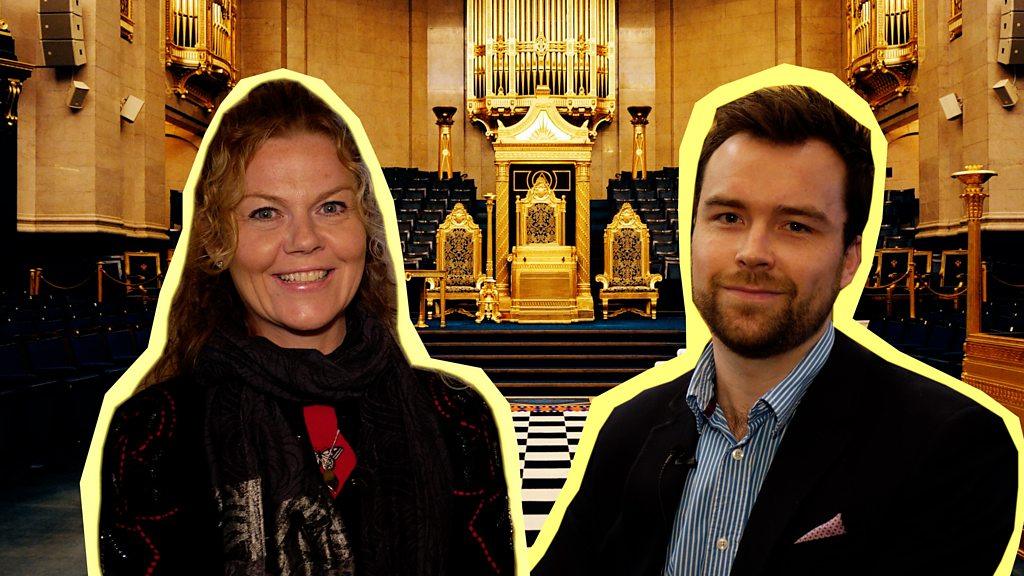Suffering of Jersey Freemasons to be remembered
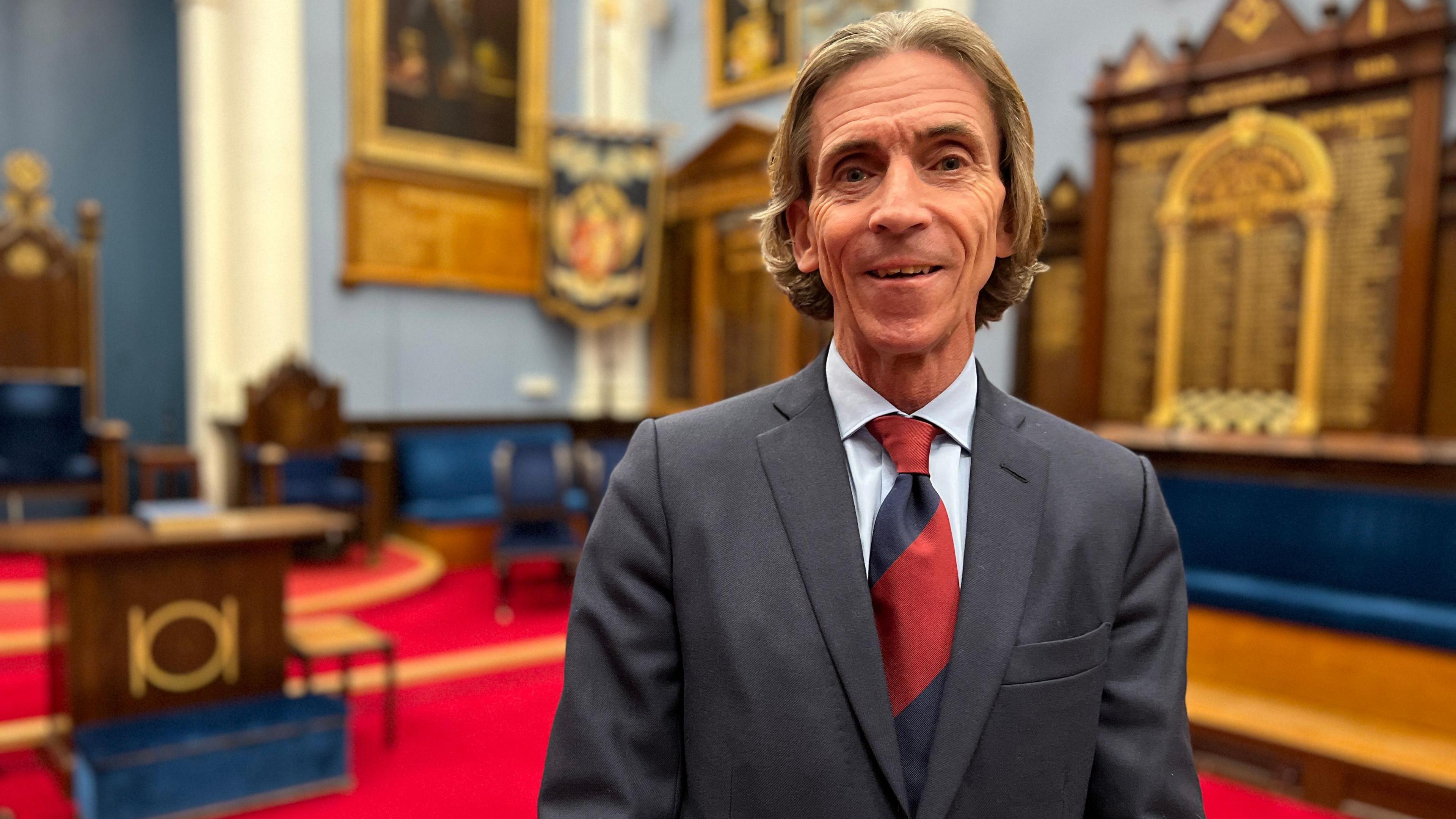
The new Head of Freemasonry in Jersey, Tim Dallas-Chapman, wants to remember those who suffered during the German Occupation of Jersey
- Published
There are plans to remember the Freemasons who were forced to hide their community during the German Occupation of Jersey during World War Two.
The new head of the community group in the island wants to work with the island's museum to highlight how members were persecuted by German troops.
Tim Dallas-Chapman was formally recognised as the new head of Freemasonry in Jersey last month.
He wants to recognise the work done by Freemasons to preserve their way of life as part of the 80th anniversary of Liberation Day on 9 May.
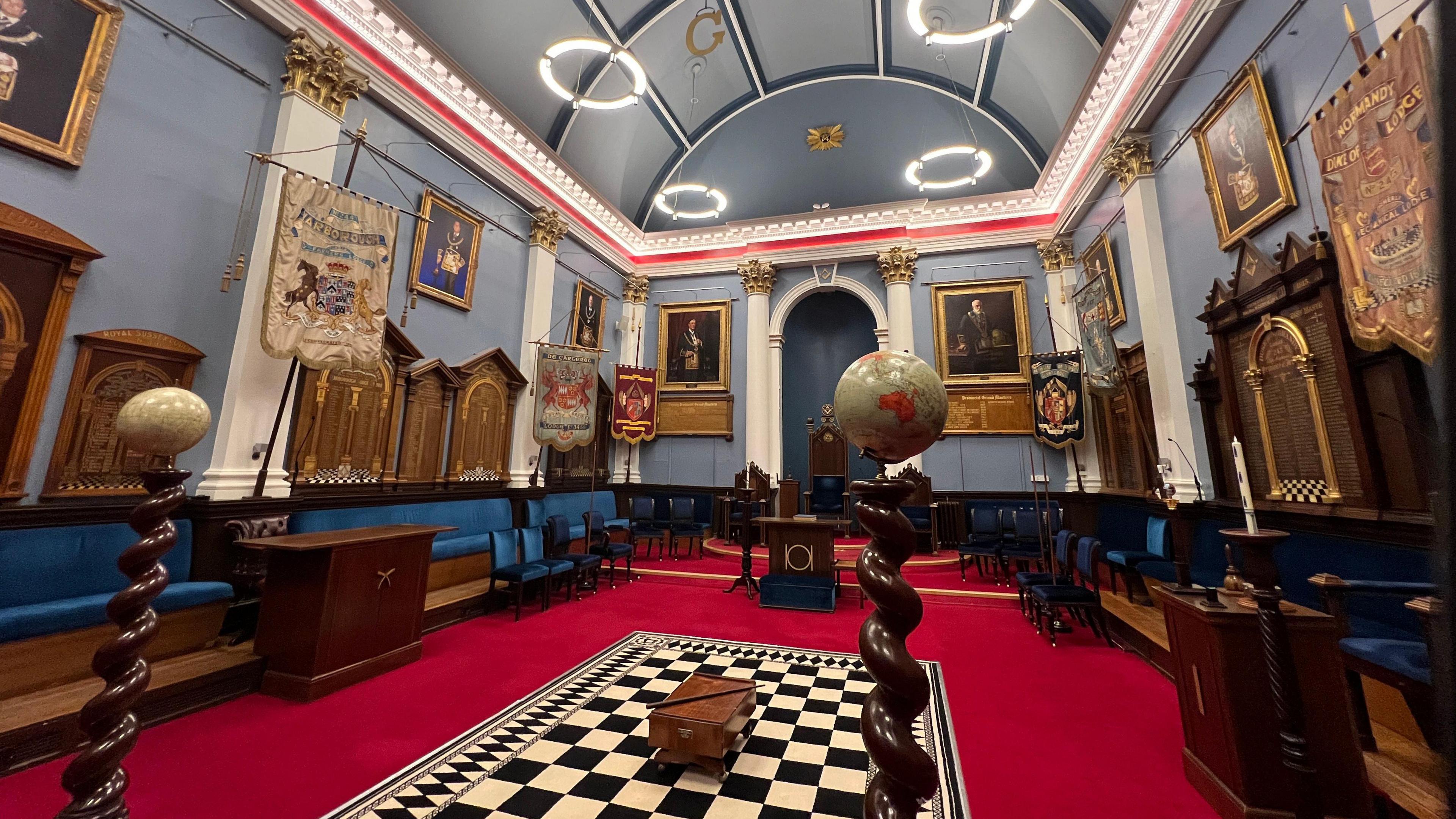
Much of the inside of the temple was either destroyed or removed during the German Occupation
Mr Dallas-Chapman also wants to change the way people think about the group and make it more welcoming to the wider community.
He said "it was a fantastic honour" to take on the role but "we have to take the mystique out of the Freemasons" so more people will join.
During the occupation the German authorities closed the temple to the public as they extended a ban on freemasonry that the Nazi regime had brought in 1934.
Mr Dallas-Chapman said a "list of every subscribing Freemason" was made the temple was used "as a bottle store" with a lot of paintings and items "destroyed or removed".
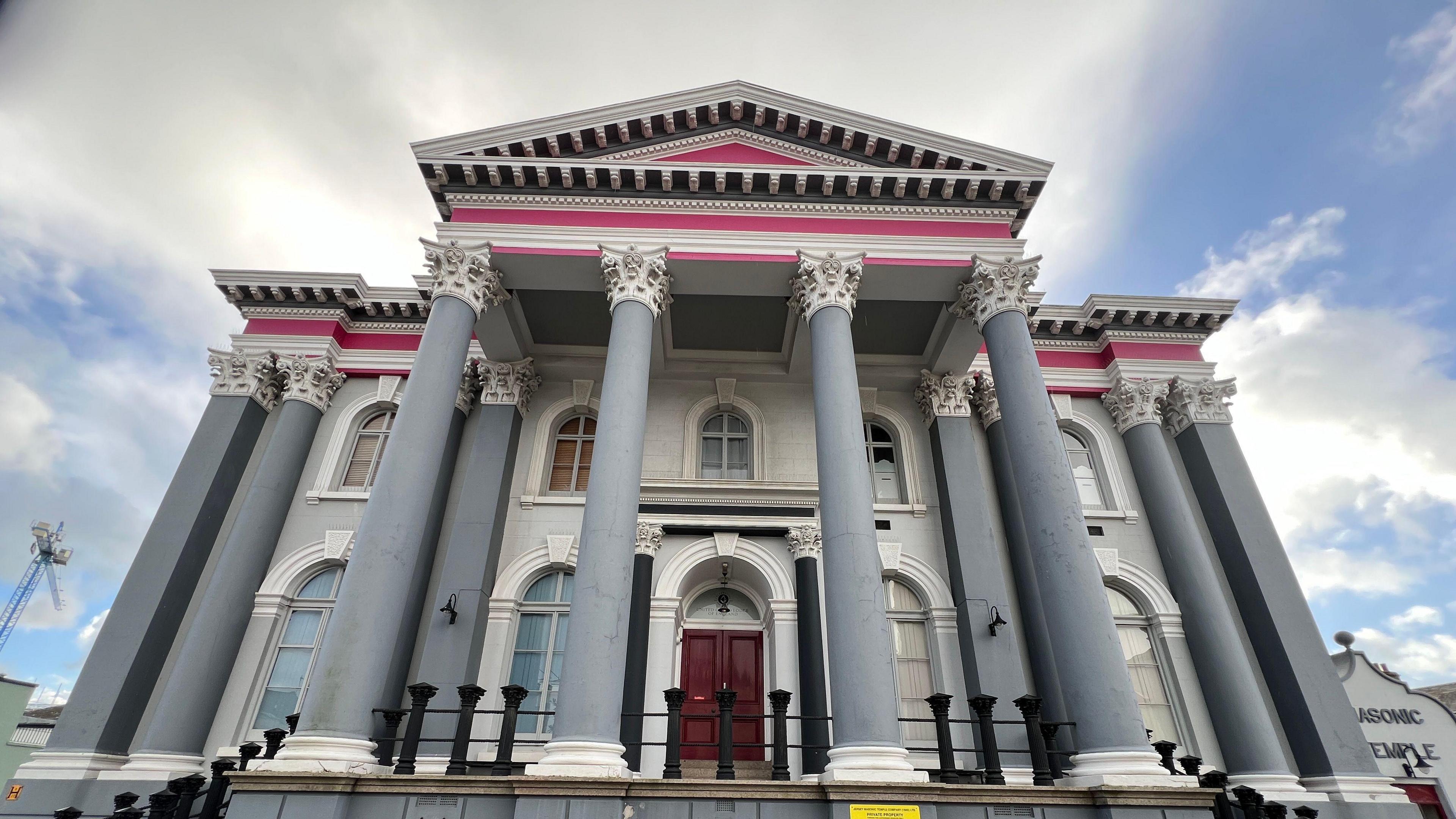
Mr Dallas-Chapman wants the Freemasons to become more accessible to the wider community
Mr Dallas-Chapman said the Freemasons in the island were forced to hide their beliefs and practices, which added to the mystic that the Freemasons are a secretive society.
He said "people felt that it was a funny handshake brigade" and "they couldn't tell you anything about Freemasonry" but "that's changed and we want to tell the world about Freemasonry".
"We distribute about £100,000 a year and have done over the last 10 or more years to local charities and we need to continue that as well," Mr Dallas-Chapman added.
Many of the painting and items destroyed or removed by the German soldiers have been replaced and other historic collections from that time are due to go on display in May.
Follow BBC Jersey on X, external and Facebook, external. Send your story ideas to channel.islands@bbc.co.uk, external.
Related topics
- Published16 June 2024
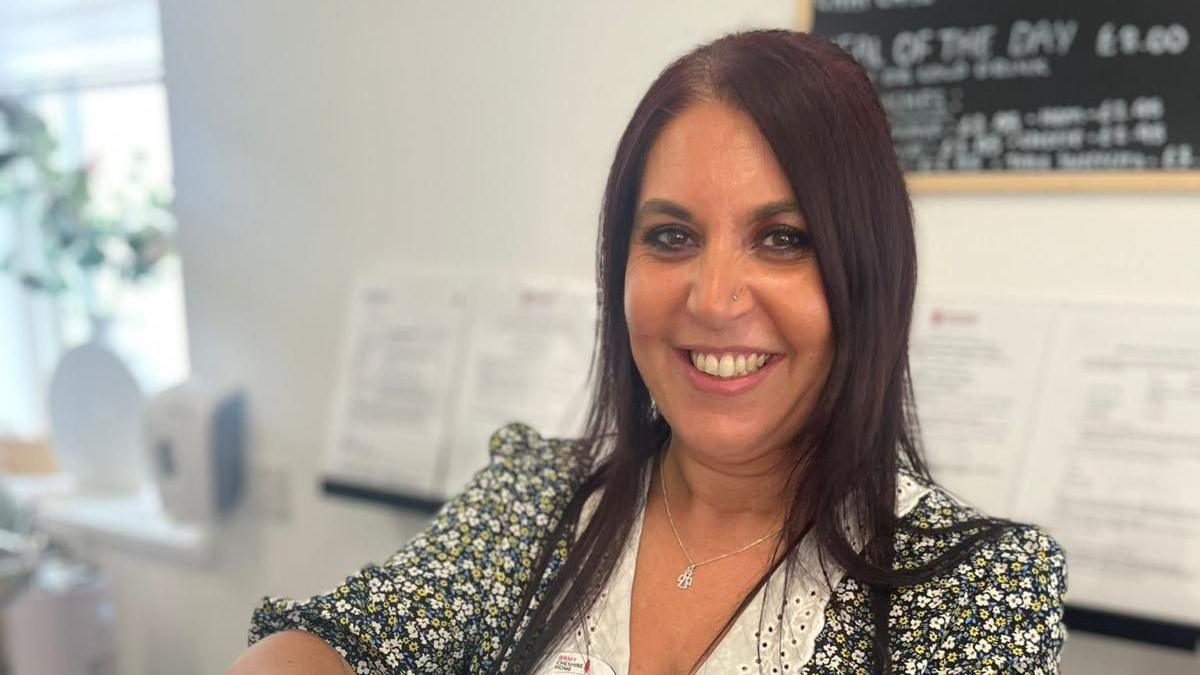
- Published9 September 2023
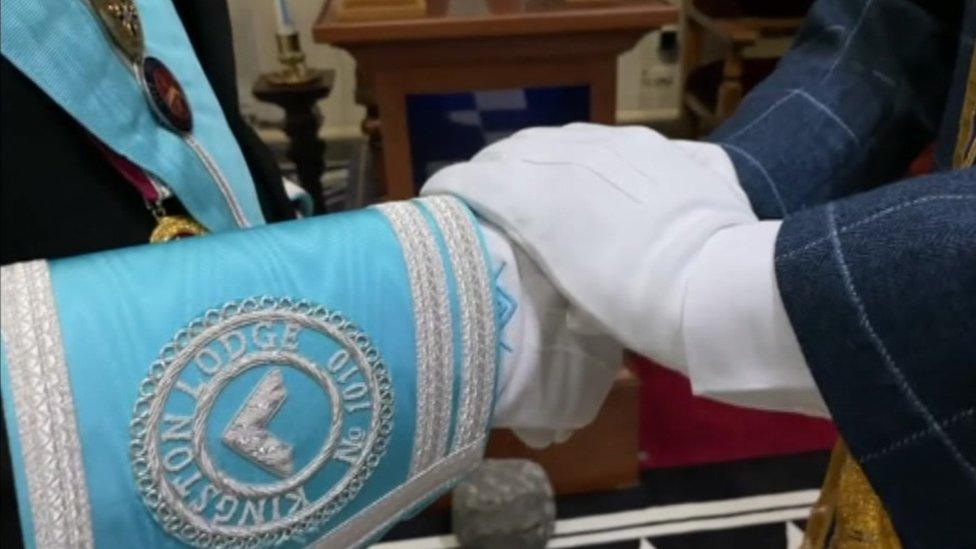
- Published12 May 2021
